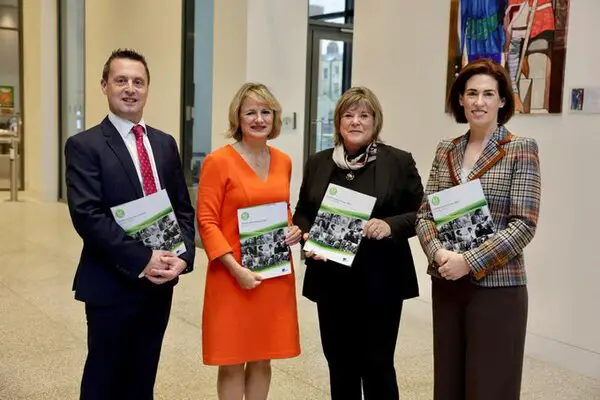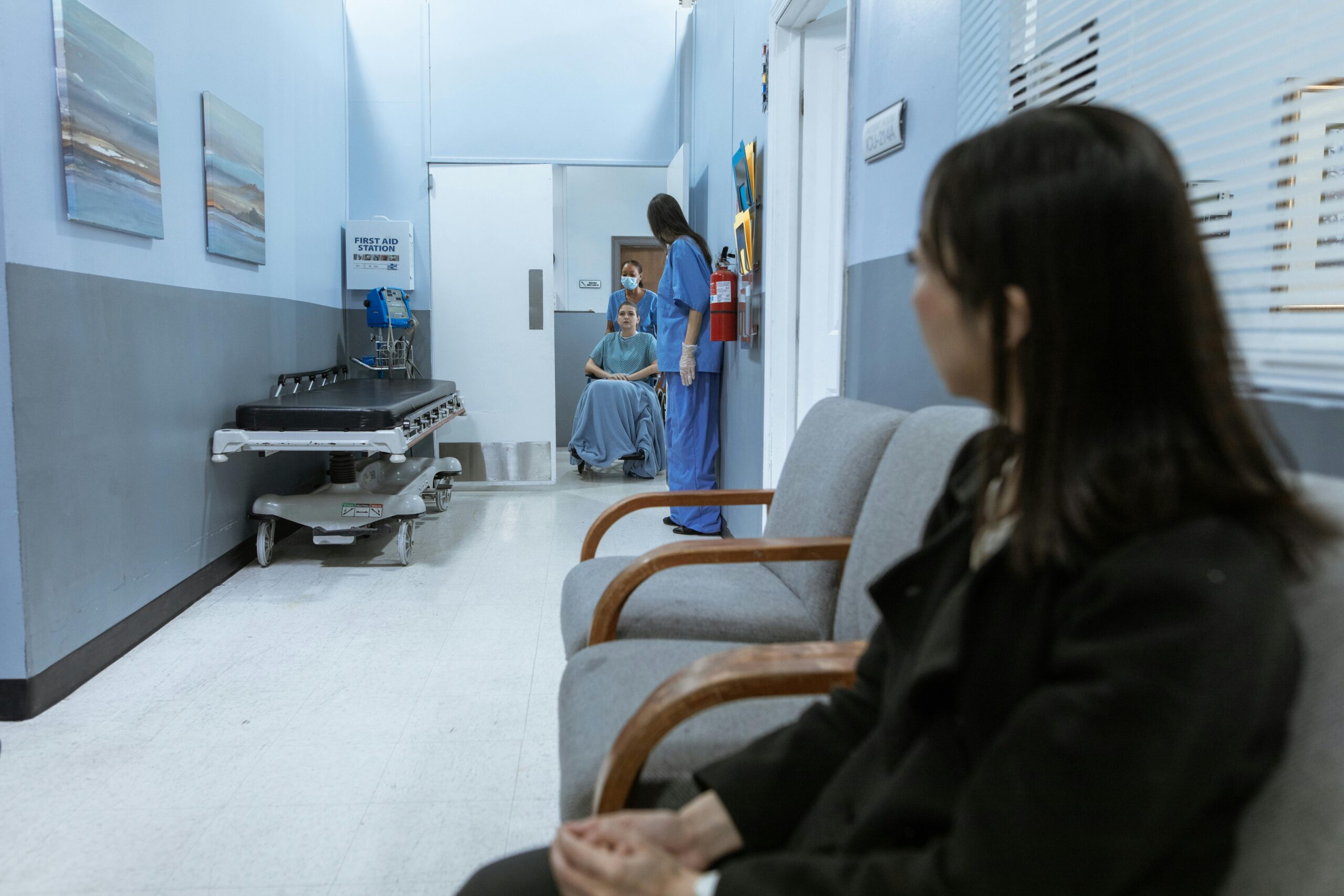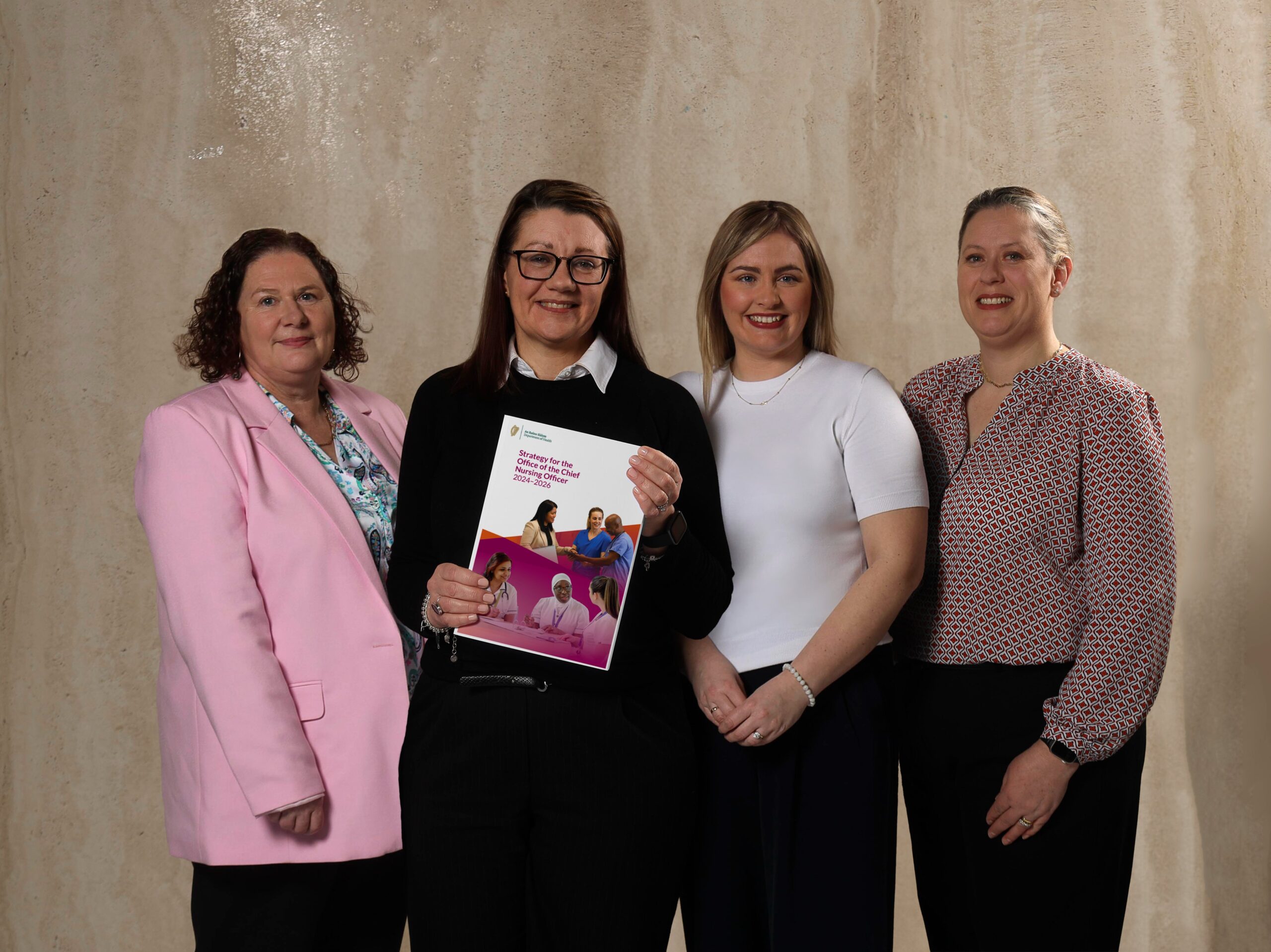Results of 2023 Healthy Ireland Survey Announced

Minister for Public Health, Wellbeing and the National Drugs Strategy, Hildegarde Naughton, Minister for Mental Health and Older People, Mary Butler, and Chief Medical Officer Professor Breda Smyth launched the Healthy Ireland Survey 2023.
The survey reveals:
- 86% report their quality of life as ‘good’ or ‘very good’
- Alcohol consumption levels have decreased
- Use of e-cigarettes has increased
- Post-pandemic increase in the use of antibiotics
- Increase in health service utilisation
Supported by the Department of Health, the annual survey by Ipsos B&A gives an up-to-date picture of the health of the nation, reporting on many health-related lifestyle behaviours. The 2023 report included smoking, alcohol and drug usage rates, mental health, social connectedness and suicide awareness, general health, antibiotic awareness and health service utilisation. Data was collected between October 2022 and April 2023.
The survey found that the prevalence of smoking is stable, the same as reported in 2021 – 2022. 18% of people are current smokers, 14% smoke daily and 4% smoke occasionally. This is a significant reduction from 2015, when 23% smoked. 8% of the population now use e-cigarettes. While e-cigarettes can be a valuable quit aid for smokers, usage rates have risen from 6% last year and are highest amongst 15-24 year-olds (used by 20% of women and 16% of men in this age group).
The proportion of the population consuming alcohol in the previous 12 months is 70%, a reduction on the 75% reported in 2018. Almost a quarter (24%) of the population are considered binge drinkers (drinking six or more standard drinks on a typical drinking occasion). Again, this rate remains lower than in 2018 (27%).
For the first time, the Healthy Ireland Survey asked respondents to participate in a drug use module. 30% reported lifetime drug use, 6% reported drug use in the previous 30 days, 5% in the last year (more than 30 days ago). The most prevalent illicit drug in the last year was cannabis, which was used by 6% of the population. This was three times the level of usage of cocaine, the next most common drug.
Minister Naughton said, \”I am delighted to have this opportunity to launch the 2023 annual Healthy Ireland Survey, a key source of information on how well we are supporting health and wellbeing in Ireland. The data can show us where things are working well, but also identify risks and instances where additional initiatives may be needed. Critically, for the first time ever, the survey has asked about drug use. Feedback from response around the use of illicit drugs and prescription drugs is particularly timely given the imminent report on the Citizens’ Assembly on Drug Use and its subsequent consideration by the Oireachtas and Government thereafter.\”
The 2023 Survey found that 86% report their quality of life as ‘good’ or ‘very good’, with just 5% saying that their quality of life is ‘poor’ or ‘very poor’. The average 2023 Energy and Vitality Index (EVI) score, with higher scores indicating positive mental health, is 65.3. This has increased from 62.4 in 2021 but remains below levels measured in 2016 (67.8). Conversely, the average Mental Health Index (MHI-5) score in 2023 (where lower scores indicate possible mental ill-health), is 78.2, an improvement on 76.0 in 2021, but higher than the pre-pandemic measurement of 81.2 in 2016.
Over one third (35%) say they feel more socially connected since 2021, with 22% reporting feeling less socially connected and 43% reporting no change.
69% of respondents know someone who has died by suicide, with 15% of respondents reporting that someone close to them died in this way. It should be noted that just 28% of survey respondents completed the questions on suicide. This indicates a response bias as those for whom suicide resonates strongly may have been more likely to agree to take part in this module.
Minister Butler said, \”I\’m happy to see improvements in mental health and social connectedness since 2021, when high-level restrictions were in place. However, mental wellbeing is not back to where it was before the COVID-19 pandemic and this requires continued focus. We are providing supports through Sharing the Vision, and we are drafting a Mental Health Promotion Plan. Given the negative impacts of loneliness on mental and physical health, we have been expanding social prescribing and other supports. We are also highlighting the importance of social connections for older people through our Hello World campaign.\”
In terms of health service use, 76% report visiting a GP in the previous 12 months, with an average of 4.0 visits per person. 55% of children attended a GP during the past 12 months with an average of 2.4 visits per child. The number of visits by children was lower than in 2019, when 58% of children had visited a GP in the previous 12 months, with an average of 3.4 visits per child.
In terms of acute service usage within the past 12 months, 16% had visited an emergency department (ED), 4% had visited a minor injury unit (MIU), and 9% had visited an out-of-hours GP service. 36% had visited a consultant, 16% had been admitted to hospital as a day patient and 12% had been admitted for longer. The proportion of people using EDs, MIUs and out-of-hours GP services were similar and in some cases, slightly higher than previously measured.
It should be noted that the Healthy Ireland Survey is a representative study – while the proportions of each age group using our primary and acute health services may not have changed much, increases in both overall population numbers and the proportion of older people (as reported in Census 2022), means that the total number of appointments, attendances and admissions have increased and that pressure on the healthcare system is rising.
41% of the population report taking an antibiotic in the last 12 months, significantly higher than the 27% reported during the pandemic in 2021, and 2% higher than the proportion in 2017. 78% correctly agreed that antibiotics kill bacteria and 59% understood that antibiotics do not kill viruses.
The Chief Medical Officer Professor Breda Smyth said, \”medicines such as antibiotics are vital drugs that are used to treat infections and to save lives, helping to protect people from infections when having surgery, giving birth and when receiving treatment for diseases including cancer. We can all help reduce antimicrobial resistance by being aware of correct antibiotic use and only using these medicines when they are absolutely needed. Hand washing and sanitising is also crucial in order to reduce the spread of infection.\”
\”We have seen some encouraging trends in the 2023 Survey, indicating some improvements in population health and in some key lifestyle risk factors such as alcohol consumption . These figures reaffirm the need for robust initiatives that support us all to live happier, healthier lives, such as the Public Health (Alcohol) Act, 2018 and the forthcoming Public Health (Tobacco Products & Nicotine Inhaling Products) Bill. It is notable that our health service is working harder than ever to meet the needs of an expanding population, providing supports that improve access to affordable healthcare including free contraception and the expansion of GP visit cards.\”
You might also like
For relevant updates on Emergency Services news and events, subscribe to EmergencyServices.ie









